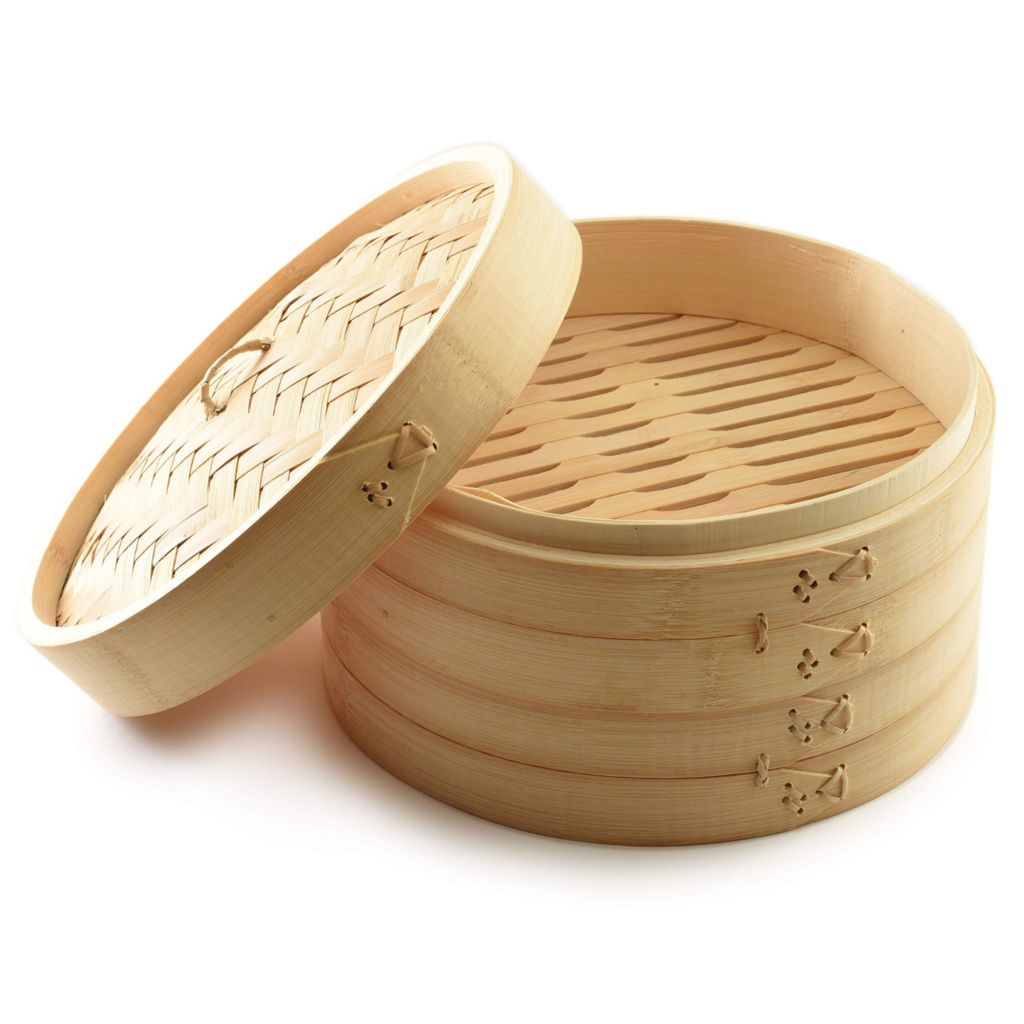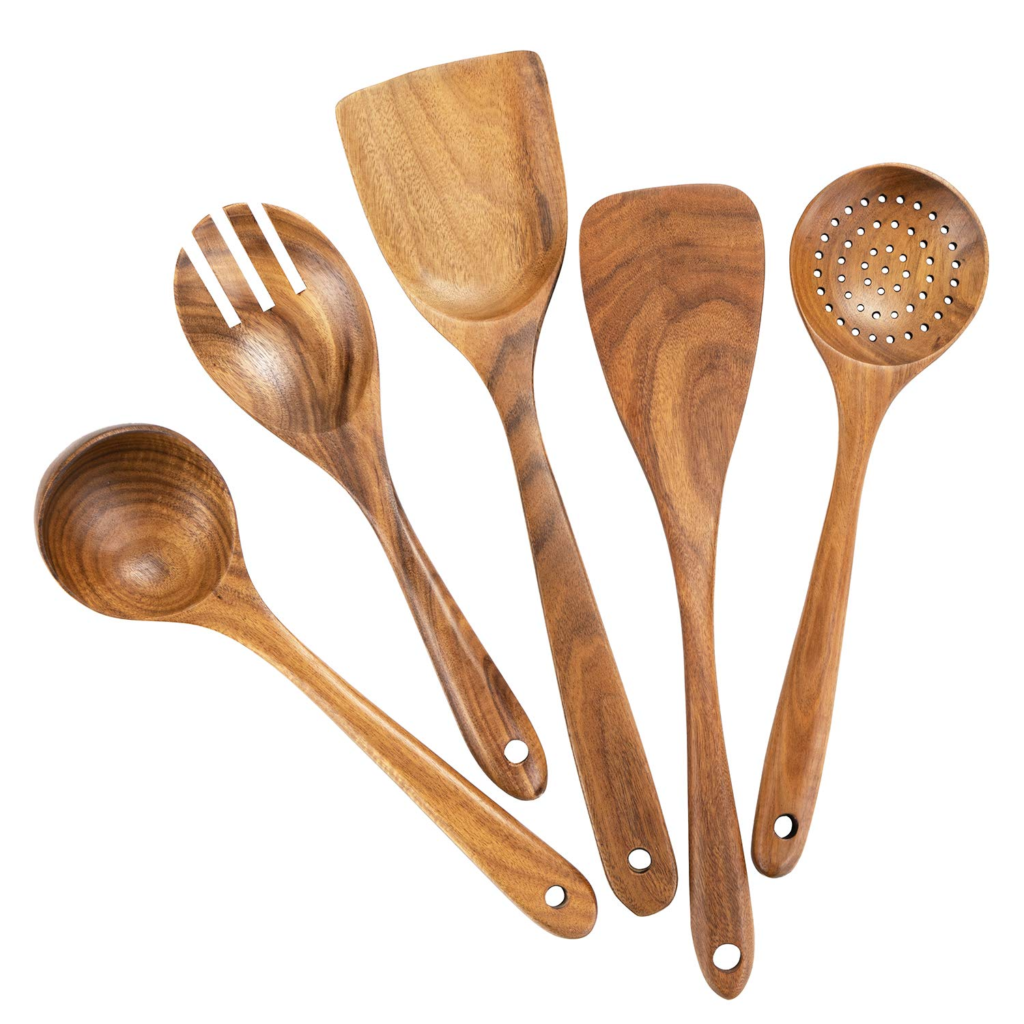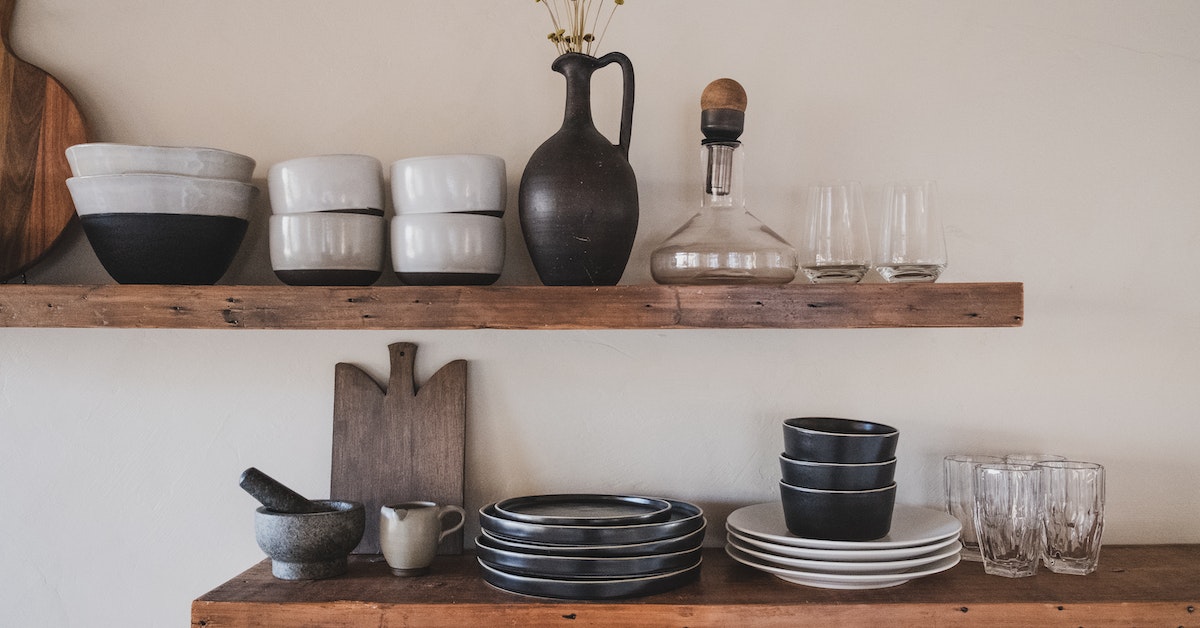8 Safest Cooking Utensils in Kenya to Keep Your Kitchen Toxin-Free Leave a comment
Are you looking for ways to make your kitchen safer in Kenya?
Cooking utensils can play a big role in the health of your kitchen.
Using the right materials, from pots and pans to spatulas and ladles, can help keep toxins away from your food.
In this article, we’ll discuss 8 of the safest cooking utensils in Kenya to keep your kitchen toxin-free.
Toxic Cooking Utensils to Avoid in Kenya (and Why)
Before we talk about the safest cooking utensils in Kenya, let’s look at some tools you should stay away from
Teflon-coated pans

Non-stick pans coated with Teflon or other similar chemicals can release toxic fumes when heated to high temperatures.
These fumes have been linked to respiratory problems, including flu-like symptoms, in humans and pets.
At the same time, the non-stick coating can peel off and get into the food, which can be ingested and cause health issues.
Aluminium cookware

Aluminum is a soft metal that can react with acidic foods, causing the metal to leach into the food.
This can lead to health problems, such as Alzheimer’s disease, as the buildup of aluminium in the body has been linked to brain damage.
Also, aluminium can warp and scratch easily, which can also cause particles to get into the food.
Copper cookware

While copper is an excellent conductor of heat, it can also be a toxic metal when ingested in large amounts.
Acidic foods can cause copper to leach into the food, leading to nausea, vomiting, and diarrhea.
Additionally, copper cookware in Kenya can be expensive and difficult to maintain, as it requires regular polishing to keep it looking shiny and new.
Related: 51 Useful Must Have Kitchen Appliances in Kenya
What is the Safest Material for Cooking Utensils in Kenya?
The safest materials for cooking utensils in Kenya are:
- Stainless steel
- Silicone
- Bamboo
- Wood
Let’s look at each!
Related: 8 Best Non stick Cooking Pots in Kenya And Their Prices
Safest cooking utensils in Kenya: 1). Stainless steel

Stainless steel is a popular material used for cooking utensils in Kenya due to its durability and resistance to rust and corrosion.
Stainless steel utensils do not react with acidic foods, making them the safest option for cooking.
They are also easy to clean, making them ideal for busy kitchens.
Examples of stainless steel utensils in Kenya include spatulas, ladles, whisks, tongs and spoons.
These utensils come in various sizes and shapes to suit different cooking needs.
Stainless steel cookware such as pots and pans are also widely available today as a safe alternative to non-stick cookware coated with potentially harmful chemicals like PFOA (Perfluorooctanoic acid).
Wash them in warm soapy water after each use to care for stainless steel utensils.
Avoid using abrasive cleaners or scrubbers as they can scratch the utensil’s surface.
Soak the utensil in warm soapy water before cleaning to remove stubborn stains or burnt-on food.
Safest cooking utensils in Kenya: 2). Bamboo

Bamboo is a popular choice for kitchen utensils due to its eco-friendliness and natural antimicrobial properties.
Choosing bamboo utensils in Kenya helps reduce plastic waste and prevents harmful toxins that can leach into your food from synthetic or non-organic materials.
Bamboo utensils come in various forms, including spoons, spatulas, tongs, and cutting boards.
A set of bamboo utensils can be an affordable option for those who want to switch to safer cooking tools without breaking the bank.
For example, a bamboo cutting board utensil set typically includes multiple sizes of cutting boards along with various utensils like slotted spoons and spreaders.
Caring for and cleaning your bamboo utensils is easy.
It’s best to hand wash them with warm soapy water rather than putting them in the dishwasher.
To prevent cracking or warping, dry them immediately after washing.
If you notice any stains or odors on your bamboo utensils over time, simply mix baking soda with water and let it sit on the surface before washing it off.
With proper care and maintenance, your bamboo kitchen tools in Kenya will last you for years while keeping your cooking toxin-free!
Safest cooking utensils in Kenya: 3). Silicone

Silicone utensils are popular for health-conscious individuals who want to keep their kitchens toxin-free.
One of the main benefits of silicone utensils in Kenya is that they are made from a non-toxic material that does not leach harmful chemicals into your food like plastic or metal utensils can.
Silicone is also a heat-resistant material, making it ideal for cooking and baking at high temperatures without the risk of melting or warping.
Many different types of silicone utensils are available today, from baking mats and spatulas to tongs and whisks.
Baking mats made from silicone are great for lining cookie sheets and baking pans because they prevent sticking and make cleanup easy.
Silicone spatulas are perfect for mixing batter or scraping every last bit out of a bowl or pan without scratching delicate surfaces.
To care for and clean silicone utensils, avoiding using abrasive cleaners or scrubbers that could damage the material’s surface is important.
Instead, wash them with warm soapy water after each use and let them air dry before storing them in a cool, dry place.
Safest cooking utensils in Kenya: 4). Ceramic

Ceramic utensils are a great choice for health-conscious individuals.
One of the primary benefits of ceramic utensils in Kenya is that they do not contain any toxic substances such as lead or cadmium.
This makes them an ideal option for cooking food as it ensures that there will be no harmful chemicals leaching into your meals.
Additionally, ceramic utensils are microwave and oven safe, making them versatile tools in the kitchen.
Some examples of ceramic utensils include a knife set, baking dish, and mixing bowls.
A ceramic knife set is an excellent investment as it features blades that are made from zirconium oxide – a material second only to diamonds in hardness.
Ceramic baking dishes are also popular among home cooks in Kenya as they can withstand high temperatures without cracking or warping.
Caring for ceramic utensils is relatively easy.
Avoid using abrasive sponges or cleaners on the surface of your ceramics as this can damage their finish over time.
Instead, opt for non-abrasive cleaning solutions like warm water and soap or white vinegar mixed with water to wipe down your ceramics thoroughly after use. Proper care will help maintain the durability and longevity of these safe cooking tools!
Safest cooking utensils in Kenya: 5). Wood

Wooden utensils are an excellent choice for cooking due to several benefits.
- Wood is non-reactive and does not leach harmful chemicals into your food, making it a safe option for cooking.
- Wooden utensils do not scratch pots and pans like metal utensils do.
- Wood has a natural ability to resist bacteria growth, which makes them hygienic and easy to clean.
Some essential wooden kitchen utensils include spoons, spatulas, forks and tongs.
These come in various shapes and sizes to cater to different types of dishes or cooking methods.
For instance, slotted spoons come in handy when draining liquids while stirring the contents of a pot.
Caring for wood utensils is simple: wash them gently with warm water and mild soap after each use before drying them thoroughly with a soft cloth or air-drying on their own.
Avoid placing them in the dishwasher as high temperatures can cause drying and cracking of the wood surface, ultimately shortening their lifespan.
Additionally, apply mineral oil every few months to keep the wood moisturized and fresh.
Conclusion
In conclusion, safe cooking utensils in Kenya are essential to maintain a toxin-free kitchen.
By choosing the right materials like stainless steel and silicone, you can prevent harmful chemicals from leaching into your food while cooking.
These utensils also offer other benefits such as easy cleaning, durability, and versatility.
We highly encourage you to try using the safe utensils mentioned in this article and switch from traditional utensils made of plastic or non-stick coatings.
The eight options presented here are just some of the many available today.
Making a conscious effort to choose safer alternatives can lead to a healthier lifestyle for both yourself and your family.
For those interested in learning more about safe cooking utensils, we recommend checking out resources like the Environmental Working Group’s Guide to Healthy Cleaning or consulting with experts in the field.
Investing in high-quality cooking utensils may seem daunting at first but it’s worth it in the long run for your health and wellbeing.
Related: 11 Best Kitchen Utensils For Nonstick Pans in Kenya

